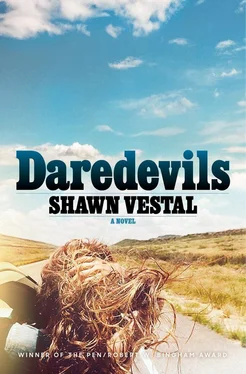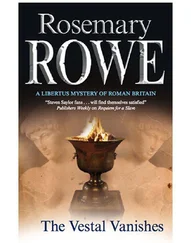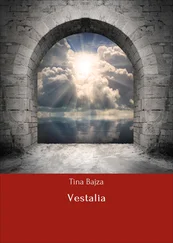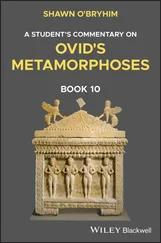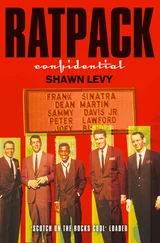For my brothers and sisters
EVEL KNIEVEL ADDRESSES AN ADORING NATION
When did we first think of jumping a canyon? It seems now that we always thought it. That it was always there for us to think. What do you call that, when the world guides you toward its purpose? We believed, America. We believed we could do anything we tried to do. We believed we could do anything we said we would do. We believed in ourself and the things we were saying. We believed that in saying these things, we were already making them true.
July 6, 1974 SHORT CREEK, ARIZONA
Loretta slides open her bedroom window and waits, listening to the house. She pops out the screen and slowly pulls it inside. The summer night is blue and black, filled with plump, spiny stars and the floral waft of alfalfa and irrigated fields. She swings one leg out, then the other, and sits on the sill. A tiny, muffled creak sounds, and she can’t tell if it comes from the house or the night or inside her jangled mind. She spends every day now thinking about the night, and this moment is always the same — the exhilarating passage from here to there. To the brief, momentary future. To Bradshaw.
She drops to the ground and sets off across the lawn, hunched as if trying to stay below the searching beam of a powerful light. She is wearing her jeans, the one pair her father lets her keep for chores, and her clogs. Her Gentile clothes. The mountains, red by day, stand black and craggy against the rich ink of night. Their home is on the edge out here, on the edge of the Short Creek community just as she and her family are on the edge of it — half outsiders, not yet inside the prophet’s full embrace — but that makes it easier to sneak away without being spotted by the prophet’s men. The God Squad, Bradshaw calls them. If she sees car lights, she crouches in the ditch grass until they pass, but tonight she sees no car. She walks the barrow pit for a quarter mile, grass cool on her bare ankles, to where the dirt lane runs into county road and she sees Bradshaw’s Nova on the wide roadside, pale luster along the fender, signal lights glowing like the hot eyes of a new beast coiled against the earth.
As she comes to the car, the passenger door opens, as if on its own, and the interior light blares, and there he is, Bradshaw, smile cocked on his hard, happy face. She feels it again, the sense that she doesn’t know if she loves him, or even if she likes him, because sometimes she yearns for a glimpse of him and sometimes she feels desperate to get away from him — Bradshaw, sitting there with his wrist draped on the steering wheel like a king — but what is certain is that she cannot resist his gravity. She falls toward him at a speed beyond her control.
“ There she is,” he says as she slides in. “Holy hell, Lori, you are a vision.”
He leans over and presses his chapped lips against her mouth. He tastes of beer, yeasty and sour. He pulls away and looks at her searchingly, ghostly eyes somehow alight, head tilted, one curly sideburn grazed by the green dashboard glow.
“Did you miss me, sweet Lori?”
“I missed you.”
“Did you think about me a whole bunch?”
“I thought about you all the time.”
She loves how much he seems to love her. He kisses her again, cupping the back of her head with a hand. She puts her hands on his back, feels the knots of muscle there. Sometimes she thinks he is trying to press his face through hers. To consume her. She wants this, always — this sin — but when it arrives she does not enjoy it, because he loses himself. He spreads a palm on her rib cage, thumb an inch from her breast. Then closer.
They part. He breathes as if he’s been sprinting.
“Did you think any more about it?” he says.
He wants her to leave with him. To take off for good and put The Crick in the rearview mirror. To be together, he says. Together together.
“I did,” she says. “I want to. But I don’t think yet. I don’t think now.”
“Aww, Lori,” he says. “Don’t say that. Don’t you say that to me.”
She wants to go. She wants to fly into her future, but she feels she must be very careful, must be precise and exact, or she will miss it. She is sure that her future is a specific place, a destination she will either reach or miss, and it awaits her out there somewhere away from all that is here. Away from the long cotton dresses. Away from the tedious days in church school, studying the same scriptures they study all day on Sundays. Away from her father’s stern but halfhearted righteousness and her mother’s constant acquiescence. And, mostly, away from the looming reality that no one ever says a word about: she is fifteen, she is eligible, she is a means now for her father to pursue his own righteousness. He cannot take another wife himself, but he can still serve the Principle — the principle of plural marriage. Celestial marriage . They have been welcoming certain brothers for dinners in their home. The men are always bright with questions for Loretta.
• • •
Bradshaw wrestles her to the seat for a while, and then they drive and talk. He loves to be listened to. He loves to tell her about the way he has handled something, the way he has put someone in their place. He is talking about his new boss, the turf farmer outside St. George.
“So he keeps handing me the eleven-sixteenths, and I keep asking for the thirteen-sixteenths, and then he does it again,” he says, slapping a hand on the dash. “I say, bud, you got your glasses on?”
His laugh is like a chugging motor. Why does he think she wants to hear this? The strange thing is, she does. She loves listening to him talk, to his strange locutions, his crudeness. So hungry I could eat the ass out of a cow, he’ll say. Shit oh dear. That smarmy bastard . He never utters a righteous word. It wasn’t all that long ago that Loretta thought he was her savior, the one who’d rescue her. She has been heading out into the night since she was thirteen, she and her friend Tonaya, meeting up with the Hurricane boys, the St. George boys, the boys the prophet had exiled. They were the crowd Loretta and Tonaya chased around whenever they could, sneaking out at night, joyriding on dirt roads, drinking beer, building bonfires in the desert, shoplifting at the grocery store, riding in the backseat as the boys bashed mailboxes or keyed cars, coming home before dawn, climbing back in that bedroom window, back into the world where no one watched television, where they prayed constantly, or sat over scripture, or sang hymns, or walked to the neighbors to weed a garden. Out there, into the worldly world, and then back home, to reverence and boredom.
The night she met Bradshaw, she and Tonaya were wedged in the backseat of an old Rambler station wagon owned by one of the boys, parked outside the 7-Eleven in Hurricane looking for someone to buy them something — a six-pack, a bottle of sweet wine. That night, it was Bradshaw. Almost immediately, when he came around the side of the store and handed the bag into the car, he looked into the back and found Loretta’s eyes. He was older than the boys she was hanging around with, but younger than the men in Short Creek, the men whose eyes she felt on Sundays at church, the men who blushed if she returned their gaze. Bradshaw didn’t blush, ever. Everything about him announced that he did not harbor a doubt — his quick, bowlegged walk, eyes of washed-out blue and angular face, and the way he was always doing something handsome and prominent with his jaw, cocking it this way or that. Soon she was meeting him alone, and every time she climbed into his car he looked thrilled and he said, “ There she is,” like he was announcing something the world had long awaited.
Читать дальше
